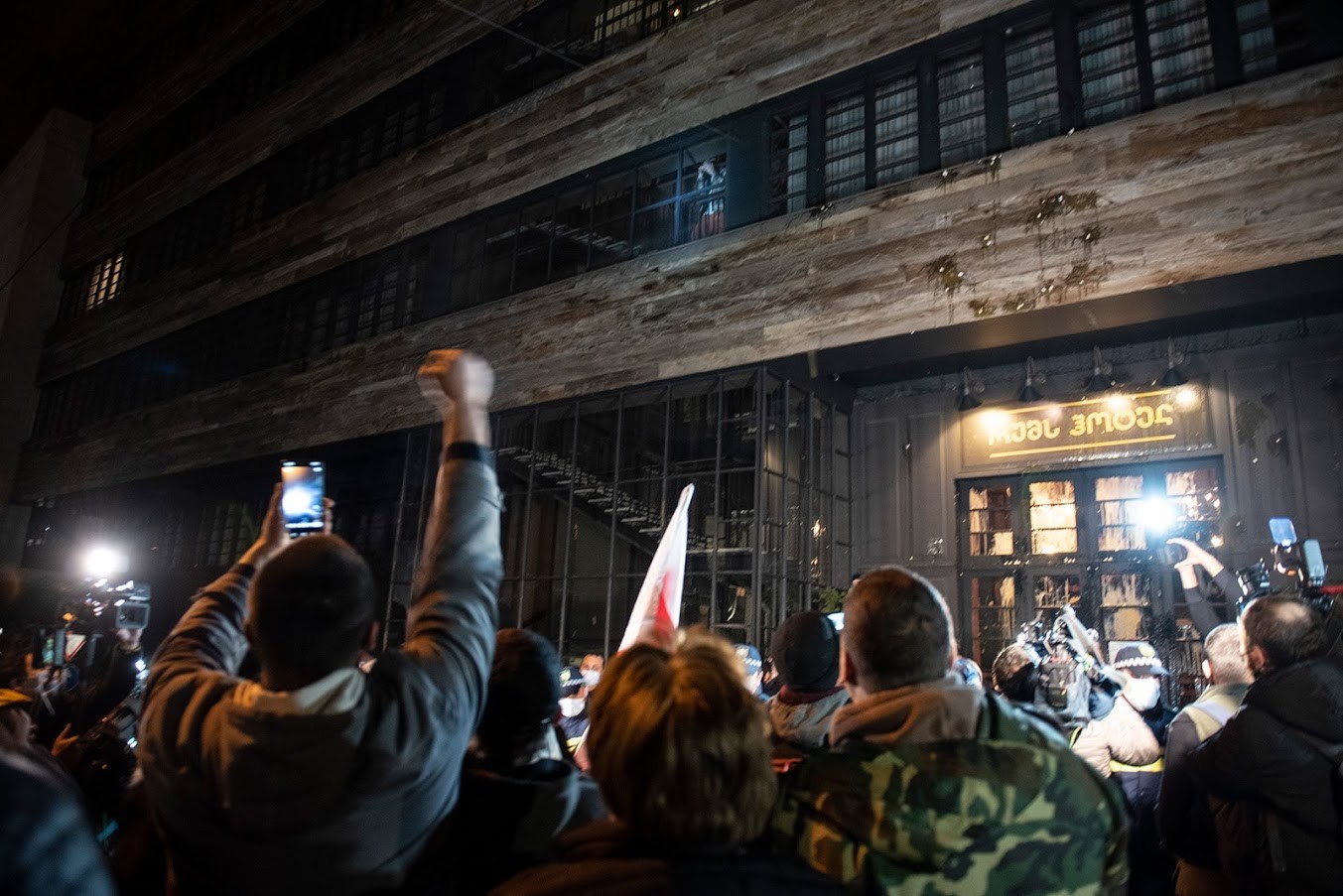
Prominent Russian journalist Vladimir Pozner had to cut his birthday vacation in Georgia short after he and his entourage faced anti-Russia protesters in Tbilisi.
In the early hours of 1 April, Georgian police escorted Vladimir Pozner and his dozens of friends out of Rooms Hotel in Tbilisi as protesters pelted the building with eggs. The demonstrators demanded that the famous Russian TV personality and his acquaintances, reportedly numbering around 50, stop celebrating Pozner’s birthday — he turned 87 — and leave the country.
Pozner and his entourage departed from Tbilisi airport the following morning.
Evacuation of the Russian journalist Vladimir Pozner and his company from a hotel Vinotel where activists protest his arrival to Georgia for his anti-Georgia statements. pic.twitter.com/66vEgcN4zF
— Mariam Nikuradze (@mari_nikuradze) March 31, 2021
Elene Khoshtaria, leader of the recently created Droa (It’s Time) movement, and the organisers of the anti-Pozner protest, told the gathered crowd the Pozner was a ‘Kremlin propagandist’ close to Russian President Vladimir Putin and that he had disrespected Georgia by saying that Abkhazia would never become part of Georgia.
Georgia lost control over Abkhazia in the early 1990s. Following the unresolved conflict and the 2008 August War, Russia recognised Abkhazia’s independence. The overwhelming majority of Georgians hold Russia responsible for Georgia’s initial military defeat and regard their military presence in the region as an ‘occupation’.
Initially, some of the protesters also accused Vladimir Pozner of violating Georgia’s Law on the Occupied Territories, something that the Georgian Interior Ministry denied while referring to Pozner as a ‘US citizen’.
France-born Pozner holds Russian as well as French and US citizenship.
All major pro-Western political groups, including the United National Movement, European Georgia, and Lelo condemned Pozner’s visit, with some of their members joining the anti-Pozner protest.
Georgian Prime Minister Irakli Garibashvili condemned the protest was ‘unacceptable and uncivilised’ and claimed that the opposition United National Movement was behind it.
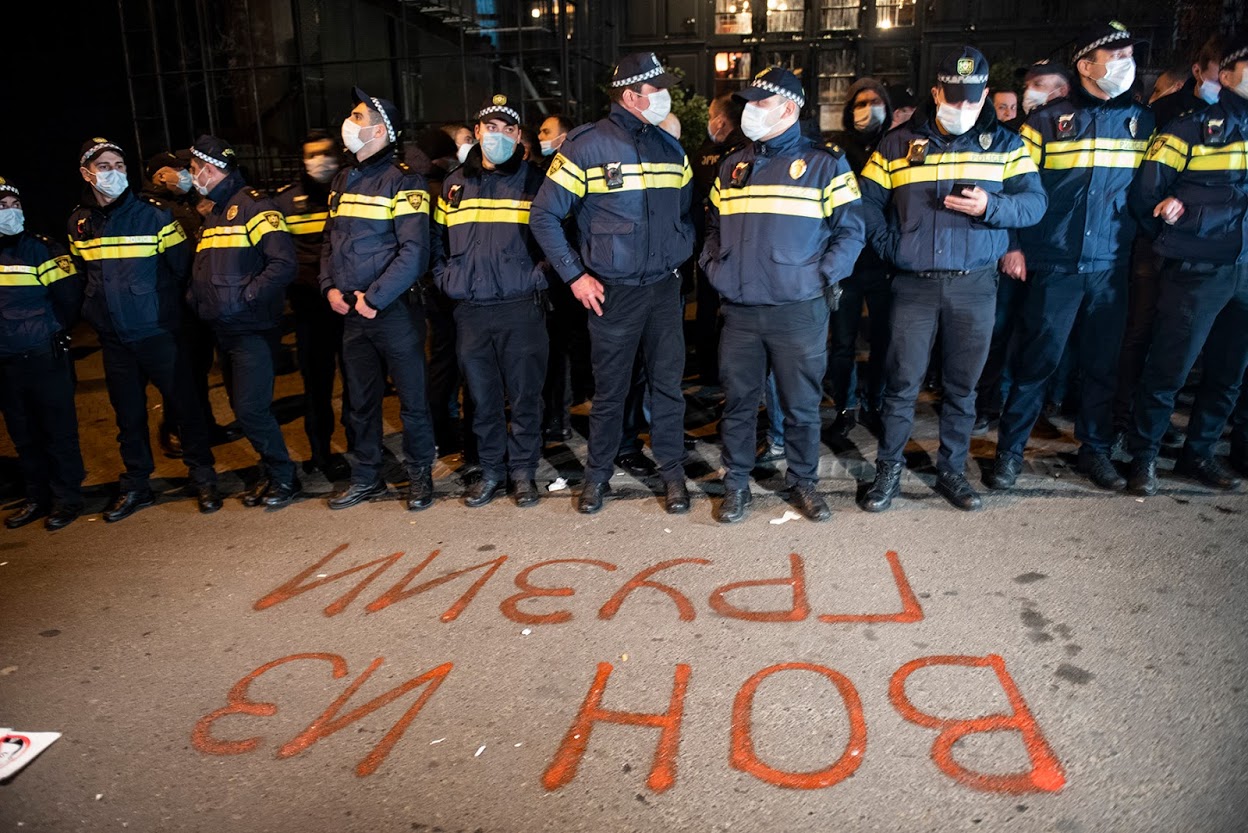
Violating curfew
During the protests, Georgian authorities announced that Pozner and his delegation had all arrived in the country with either negative PCR tests or had proof of vaccination.
The morning after the protest, the Interior Ministry followed up with their statement stating that they had fined 32 out of 50 Russian visitors for violating the curfew.
Before police relocated the Russian visitors to the Rooms Hotel, protesters tried to disrupt the festivities as Pozner and his entourage dined at a restaurant inside Tbilisi’s Vinotel Boutique Hotel by cutting Vinotel’s electricity supply.
Activists also reprimanded the Georgian authorities for letting Vladimir Pozner and his friends into the country and permitting them to enjoy the nightlife while ordinary citizens were still unable to do so.
Following the protests, the Georgian Labour Inspectorate announced at night that they would fine the restaurant ₾10,000 (almost $3,000) for operating during curfew hours. The coronavirus mitigation measures in Georgia still bar anyone from being outside between 21:00 – 6:00 unless one has a special permit.
Some government critics have accused the Georgian authorities of instituting a corrupt permit issuance policy as well as breaching their constitutional rights to freedom of movement and freedom to protest.
A mass anti-curfew demonstration is due to take place the night of 3 April.
The protest also happened one day after Georgians marked the 30th anniversary of the independence referendum which led to Georgia declaring independence from the Soviet Union.
In June 2019, a much larger demonstration against a Russian visitor to Georgia, Communist Party MP Sergey Gavrilov, sparked days of protests and a political crisis. In response, Russian President Vladimir Putin cancelled Russian air travel to Georgia, a decision Pozner, who has often praised the Kremlin’s foreign policy decisions, including the annexation of Crimea, criticised as ‘pointless’.
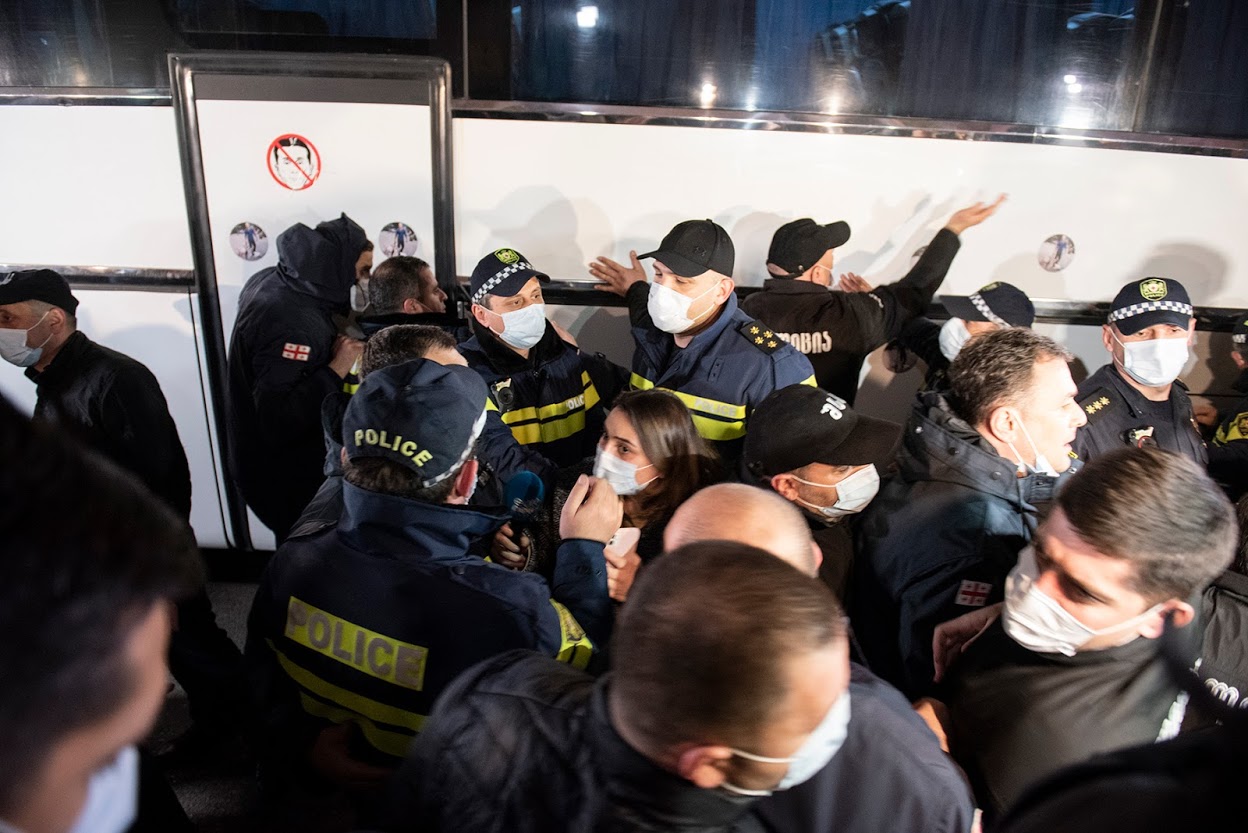
For ease of reading, we choose not to use qualifiers such as ‘de facto’, ‘unrecognised’, or ‘partially recognised’ when discussing institutions or political positions within Abkhazia, Nagorno-Karabakh, and South Ossetia. This does not imply a position on their status.



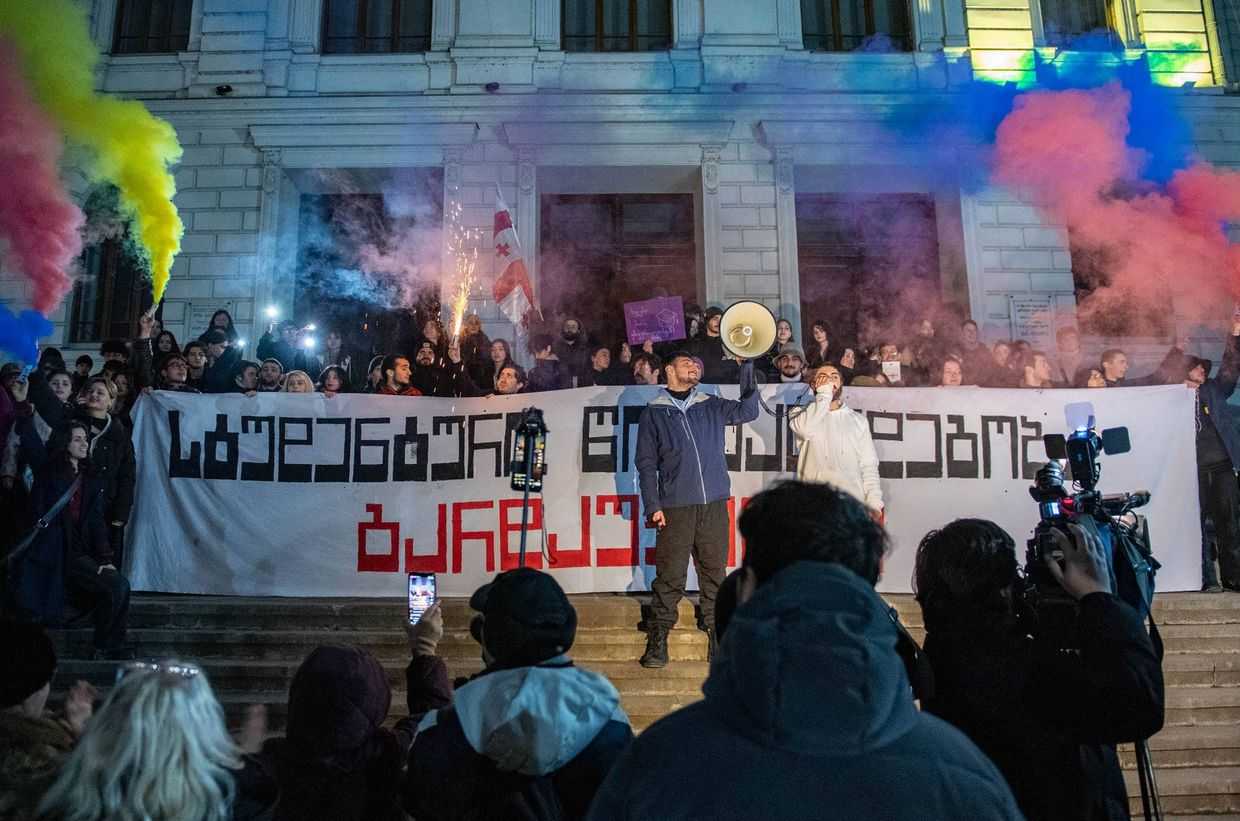
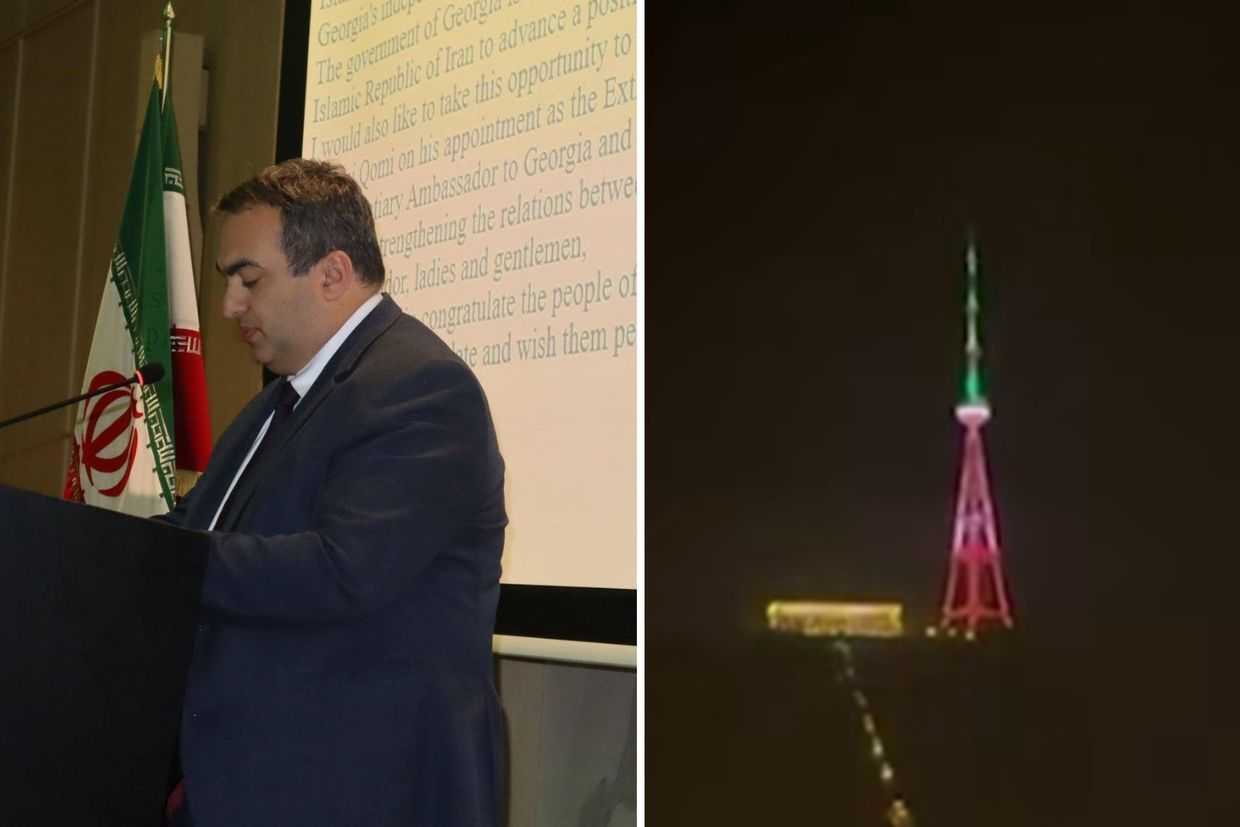

![Baia Margishvili standing in central Tbilisi with a sign reading: ‘The Prosecutor’s Office [is] a punitive squad. How many more innocent people will you put in prison?’ Photo: Mariam Nikuradze/OC Media.](/_next/image/?url=https%3A%2F%2Fassets.bucket.fourthestate.app%2Foc-media-prod%2Fcontent%2Fimages%2F2026%2F02%2Fcalls-for-sanctions-and-raids-19-10-25-48.jpg&w=3840&q=50)


